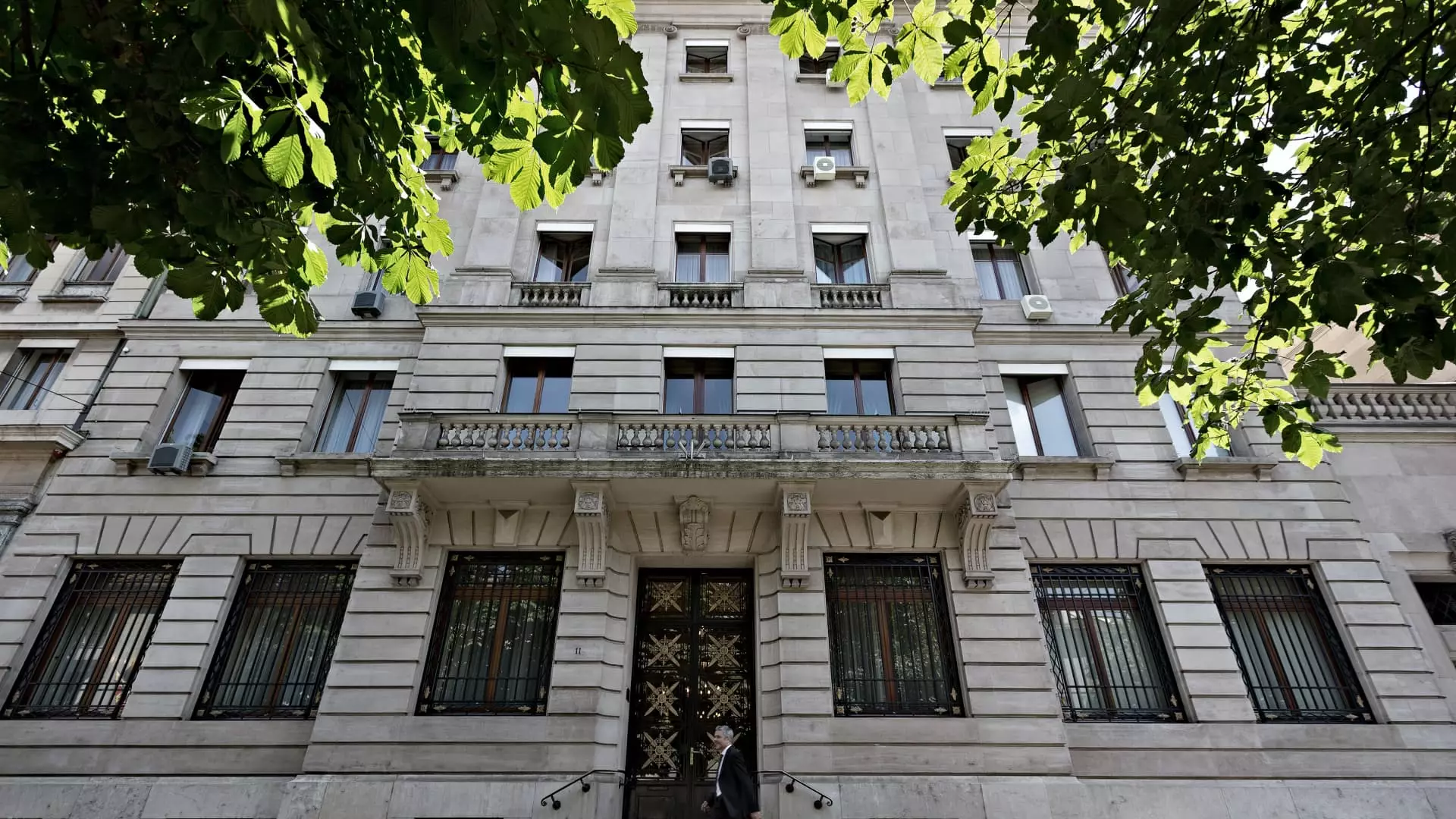The financial institution Lombard Odier, distinguished as one of the oldest private banks in Switzerland, has found itself mired in controversy following an indictment by the Swiss authorities for “aggravated money laundering.” The Swiss Office of the Attorney General (OAG) announced that it had brought criminal charges against Lombard Odier and a former employee at the Federal Criminal Court, framing the indictment within a larger narrative of financial crime connected to criminal activities in Uzbekistan.
This indictment centers around allegations concerning the daughter’s financial machinations of Islam Karimov, the former authoritarian president of Uzbekistan. The OAG has accused Gulnara Karimova of orchestrating money laundering operations from 2005 to 2012 in Switzerland and maintaining ties with criminal organizations that benefited financially from illicit activities. The case raises significant implications for the integrity of private banking practices in Switzerland and prompts a closer examination of Lombard Odier’s risk management protocols.
The crux of the allegations suggests that Lombard Odier, along with one of its former relationship managers, played a central role in obscuring the origins of funds linked to Karimova’s illicit activities. Prosecutors allege that substantial amounts of laundered money may have been deposited into the bank’s accounts in Geneva, calling into question the effectiveness of the bank’s monitoring systems and compliance measures.
Lombard Odier has asserted its commitment to board governance and compliance, vehemently denying the accuracy of the claims presented against it. The bank’s defense rests upon the premise that the accusations lack merit and that the investigations emerging from Switzerland’s financial oversight bodies were initiated after Lombard Odier had independently alerted authorities about suspicious activities itself. This assertion of proactivity in reporting potential compliance issues is an important element in the bank’s narrative as it seeks to mitigate reputational damage.
This case stands as a reflection of wider issues within the banking sector regarding accountability and oversight. The spotlight on Lombard Odier underscores a persistent challenge in global finance: tracing and mitigating money laundering risks, particularly when intertwined with high-profile political figures and regimes. The repercussions of the case could extend beyond financial penalties for the bank, impacting client trust and investor confidence in Swiss private banking overall.
Moreover, the ongoing legal struggles of Gulnara Karimova, who is currently serving a prison sentence in Uzbekistan, present a complex backdrop of political and economic entanglements that further complicate this situation. As the case unfolds in the courts, the ramifications may stir discussions about reforming banking practices and enhancing regulatory frameworks to ensure greater transparency and diligence in financial transactions.
Ultimately, Lombard Odier’s indictment is a significant development that highlights the urgent need for banks to reassess their risk management strategies. As investigations progress, the banking world watches closely, knowing that the outcomes could shape the future of compliance protocols within the industry. The case may serve as a cautionary tale—demonstrating that even esteemed financial institutions are not immune to scrutiny and that maintaining the highest standards of integrity and governance is paramount in sustaining trust among stakeholders.

